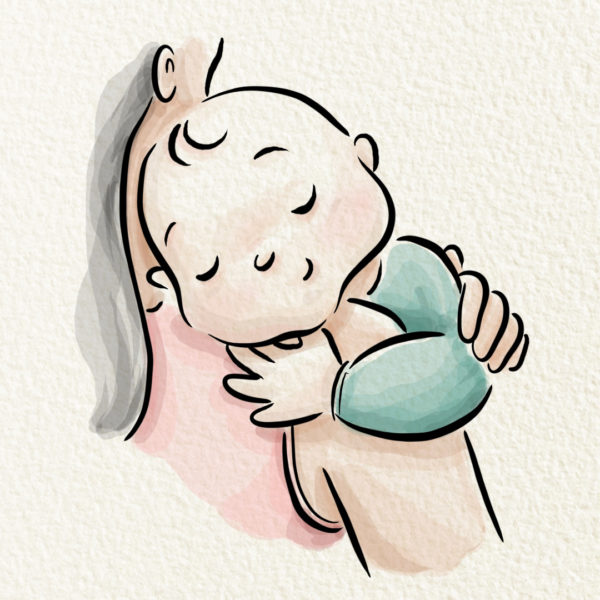Month 4: Establishing routines
Baby monthly update

Your baby continues to practice skills achieved last month, such as lifting the head up or making fists. You can now start to establish routines.
Establishing routines — especially if you are going back to work — can make transitioning to a new life as a parent smoother for both you and your baby.
How are you and your baby
If Your Child has learned to prop the body up while lying on the tummy, the little one might learn to roll soon. They might even be able to reach out to grab objects.
Your Child may start practicing broader forms of communication, such as turning their head toward sounds, gurgling to get attention, or calming down when soothed.
You will get more sleep or get used to not sleeping, as you adapt to new routines. Your body feels much like your old self, and the chances of developing postpartum depression are now very low.
What are routines
Routines are a sequence of activities that happen at the same time and in the same order every day. Babies feel secure when there is consistency, and routines offer just that. An example of a routine is the bedtime routine — showers first, then feeding, reading a story, and lastly lying down to sleep. For many moms whose maternity leave is about to end, planning help and managing quality time while maintaining the routines consistent for Your Child can be challenging.
How to establish daily routines
Sleep, eat, play, repeat: Once patterns of sleeping and feeding emerge and become predictable, you can start incorporating play activities, such as talking, singing, and reading, as part of Your Child’s daily routines. Most importantly, these routines should be maintained consistently every day. Knowing what will happen next offers Your Child a sense of security. Many moms also appreciate routines because they can plan their chores so as to spend quality time with their babies at a predictable time.
Pumping: Feeding is undoubtedly a part of your baby’s daily routines. If you will be away from Your Child due to work or other circumstances, you may consider pumping to keep stock of breast milk. Determining the right time for pumping — both at home and office — allows you to decide when your child will receive breast and when to use the bottle. You can try to establish this arrangement a few weeks before starting a new regimen, so your child has a chance to get familiarized with the new routine.
Communication: You will need to communicate your baby’s daily routines to the caregiver who is helping you so Your Child’s routine is not interrupted. The information may include things like sleeping and feeding schedule, favorite toys or activities, how the little one likes to be soothed, and what prompts certain distress and anxious responses.
Why you should have daily routines
Routines reduce stress as they provide young children with the ability to anticipate future events. This is important for children because they do not yet understand the concept of time, as in night and day. So, knowing what will happen next helps them easily cope with changes, especially when they are learning to get used to strangers and adjusting to separation anxiety, which will happen in a few months from now.
Sometimes, when children are going through big changes they can get more insecure, anxious, and cranky than usual. Having at least the same routines every day can help them feel a little more grounded.
Verified:
Dr. Ketsupa Jirakarn (Mental health specialist) (1 November 2023)



